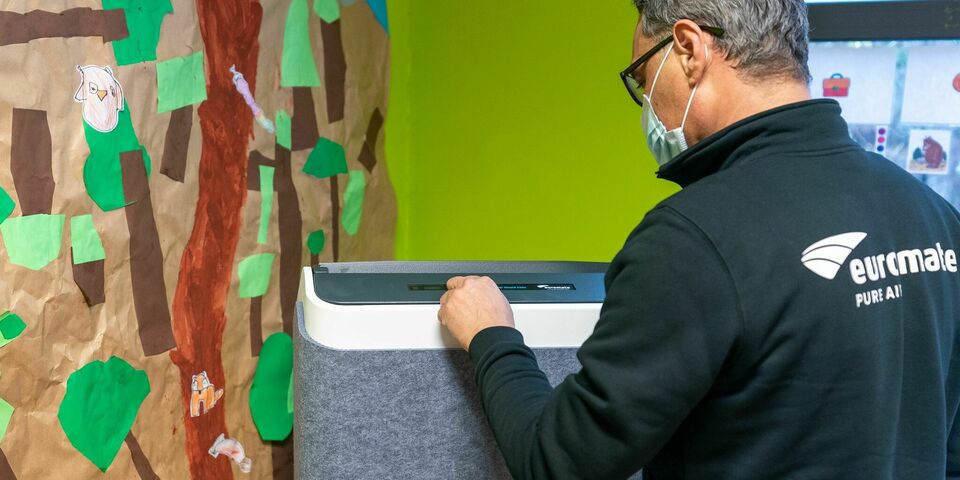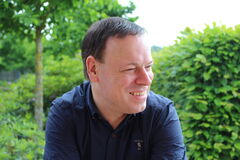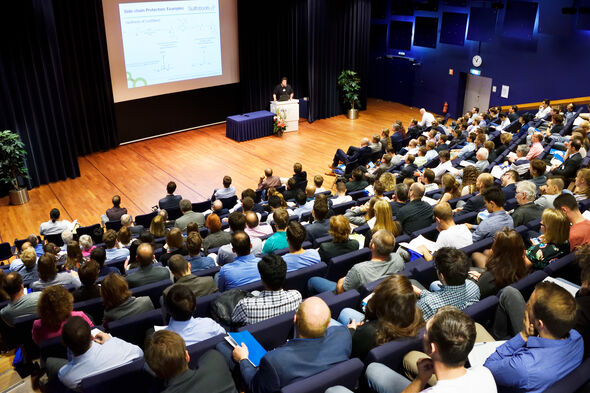Air purification research project has “gotten out of hand, in a good way”
Using air purification to fight the pandemic: it is a no-brainer, says TU/e's Full Professor Bert Blocken. But it is not (yet) a tool government and RIVM want to use. To change this, the building physicist has now started a research study with ventilation expert Leen Peeters and virologist Marc Van Ranst.
It is available, it works and it can be implemented quickly. In the current corona pandemic, air purification counts as low-hanging fruit, says Bert Blocken, Full Professor at the Department of the Built Environment and an expert in the field of aerodynamics. “Better said, the fruit is already lying on the ground, you only need pick it up.” Even so, to his immense frustration, air purification devices are few and far between in the Netherlands and Belgium. Supposedly, air purification has not been proven to filter the virus from the air. Nonsense, says Blocken, because the virus is carried in droplets. Remove the droplets from the air, and you'll remove the virus.
To prove this, he has now set up a research project with Full Professor Marc Van Ranst, a famous Belgian virologist at KU Leuven, where also Blocken works as a part-time Full Professor. Ironically, the virologist and Blocken were initially at loggerheads over air purification. “He [Van Ranst] was rather unimpressed by a project involving air purifiers in schools in Staphorst. We got into a heated exchange of words about it on Twitter.” That same evening the two settled their differences and decided to join forces, planning a large-scale study of air purification in classrooms involving building physics and virology. With the added element of establishing how infections can be reduced.
Unacceptable
The issue of infection goes right to the study's Achilles heel since the classroom isn't the only place a school pupil can become infected. “To make this type of study watertight, you'd have to create unacceptable situations. You'd need to confine children to a classroom for six months. And of course we aren't going to do that.” It means a question mark will hang over the findings of that part of the research project, Blocken admits.
That aside, this project has been set up largely to gather scientific evidence for something the professor already knows to be true. Namely that with sufficiently strong air purification, the aerosol concentration and the viral load is reduced by some 90 to 95 percent. “It is a question of convincing people and government authorities of the fact that this is a solution, and that it's one we need to be pursuing.”
But isn't it a little late for this, now that the pandemic seems to be waning? That's possible, says Blocken. “But hopefully this study will help get air purification accepted as a measure and it will enable us to prevent lockdowns and a great many deaths in a future pandemic; it is only a matter of time before there's another one.”
Time pressure is one factor that makes this an atypical study, Blocken tells us. “Normally, you write a proposal, and you go in search of funding and researchers. That's eighteen months right there. That's time we don't have, so we are getting everything going at the same time.” In the Belgian towns of Aarschot and Bilzen air purifiers are being installed right now, while Blocken is still busy recruiting more schools in the Netherlands.
Waiting list
That shouldn't be difficult. In Belgium fifty schools are already taking part and there is even a waiting list. In the Netherlands applications are also pouring in. “With this project we started out small, but it's certainly gotten out of hand, in a good way.” Blocken is hoping for a thousand participating classrooms.
The project is being organized at grassroots level. Ditto the financial side. “We are asking cities and municipalities to make a small financial investment and purchase a number of air purifiers. And I'm arranging with manufacturers that schools can use their devices free of charge for six months and without any purchase obligation.” Blocken, Peeters - who has also been arguing for using air purifiers at schools for a while now - and Van Ranst will themselves be shouldering the costs incurred by their own laboratories. “It will burn a hole in my finances, but so be it. We won't let the lack of a budget stop us.”
Blauwe Zaal
Blocken can also count on help from TU/e and KU Leuven, both of which are providing a significant amount of measuring equipment. The universities are themselves participating in the project. In some rooms on TU/e's campus the ventilation is excellent. “In the Blauwe Zaal, for example, you can literally feel the air moving. The ventilation in that room is substantial.” Elsewhere, especially in the older buildings, ventilation meets building regulations, no more than that. “Unlike RIVM, I am not convinced this is enough, quite the opposite. It is the bare minimum of what you are entitled to expect.”
Nowhere on the campus is air purification in use. And so TU/e is partnering up as a location. “I've now asked Real Estate to draw up a list of locations where people sit together in relatively poorly ventilated (often older) spaces. We plan to use these for the study. The air there will be not only ventilated, but purified.
Blocken has set himself a mammoth task with this air purification project, and this comes at a time when the pandemic has given him more than enough to do. For example, in an interview last year he said people could mail him if they needed advice on air purification. Blocken received hundreds of mails. “That hasn't eased off, but I want to help these people.” With all his extra corona-related work, he is hard pushed to meet his professorial commitments.
Sleep
“It's starting to have an impact. Creative curiosity-driven research has been reduced to nil. I'm not doing enough supervision of doctoral candidates and the attention I'm able to give education is at a minimum. This can't go on for much longer. I'm up to 120 hours a week and I need some sleep if I'm to function. Hopefully things will calm down once the project is up and running.”




Discussion